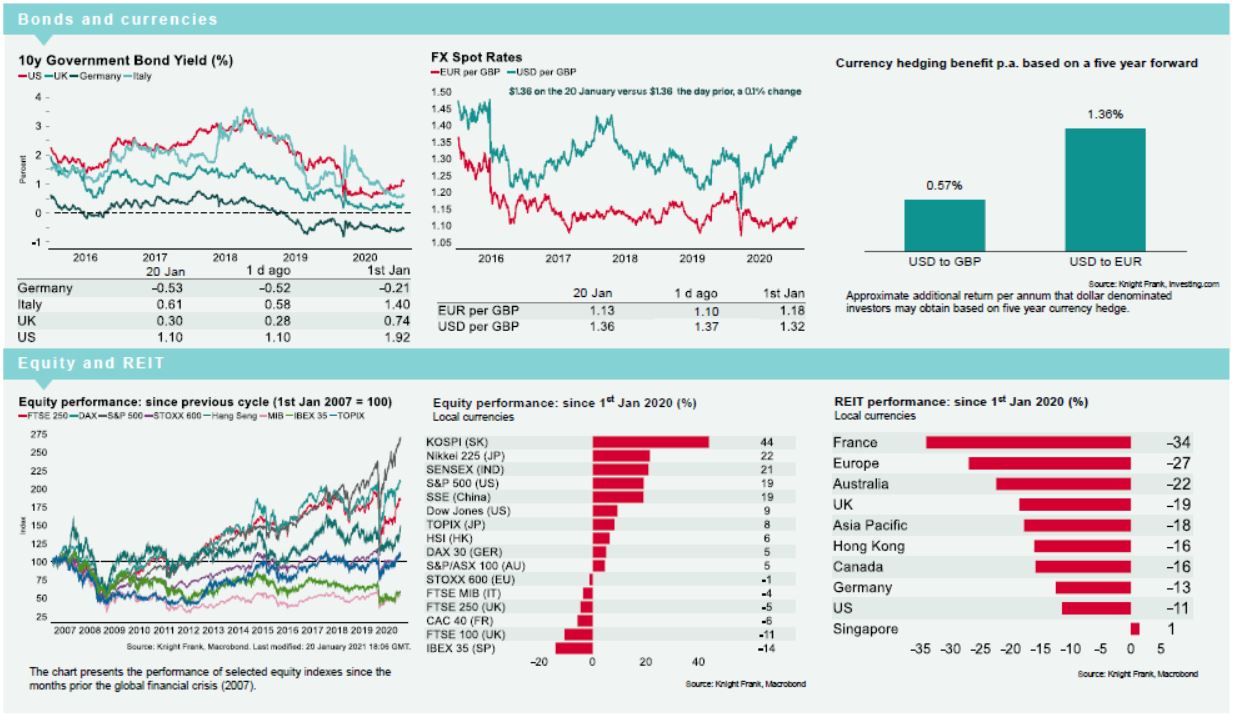Daily Economics Dashboard - 21 January 2021
An overview of key economic and financial metrics.
2 minutes to read

Download an overview of key economic and financial metrics on 21 January 2021 2020.
US presidency: On his first day in office, President Biden signed 17 executive actions on migration, climate change, pandemic response and equality, including the re-joining of the Paris climate agreement and the World Health Organization. Further executive actions are expected in the coming weeks.
Equities: Globally, stocks are higher over the morning. In Europe, the DAX and STOXX 600 are up +0.4%, followed by the FTSE 250 (+0.3%) while the CAC 40 remains steady. In Asia, the CSI 300 (+1.6%), Kospi (+1.5%), S&P / ASX 200 (+0.8%) and Topix (+0.6%) all closed higher, while the Hang Seng was marginally down -0.1%. In the US, the rise in the S&P 500 on Wednesday (+1.4%) was the biggest for any presidential inauguration day since 1985. However, the index remained stable so far this morning at 3,851.
VIX: Following a -11.3% decline over the past two days, the CBOE market volatility index has decreased a further -0.9% this morning to 21.4, just above its long term average (LTA) of 19.9. The Euro Stoxx 50 vix is also lower this morning, down -2.7% to 19.7, remaining below its LTA of 23.9.
Bonds: The UK 10-year gilt yield, the German 10-year bund yield and the US 10-year treasury yield have all held steady at 0.30%, -0.53% and 1.08% respectively.
Currency: Sterling and Euro have both appreciated to $1.37 and $1.21 respectively, given the prospect of further US deficit spending. Hedging benefits for US dollar denominated investors into the UK and the eurozone are 0.57% and 1.36% per annum on a five-year basis.
Gold: The price of gold remained stable today at 1,871 but it is up +1.1% week on week.
Baltic Dry: The Baltic Dry increased +3.5% on Wednesday to 1,828. Cumulative gains over the last 15 sessions are currently +34%, however, the index remains -13% below the $2,097 peak recorded on 6th October 2020.
Eurozone Inflation: Eurozone annual inflation was -0.3% in December for the forth consecutive month. The annual core inflation (excl. energy, food, alcohol & tobacco) which the ECB looks at for its policy decisions, was also unchanged at +0.2% in December, the lowest level on record.